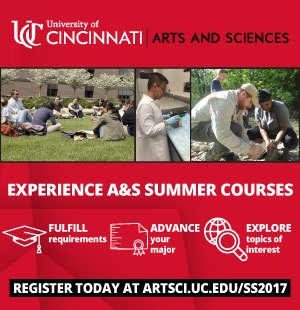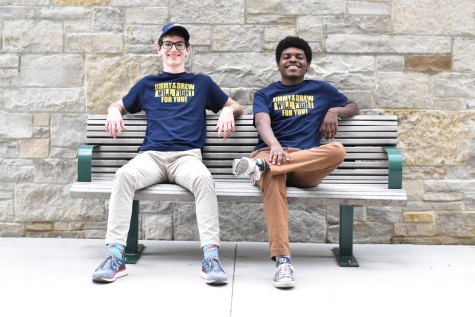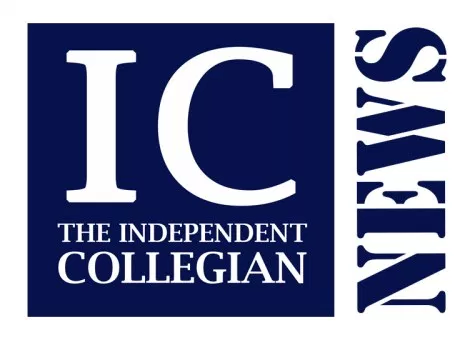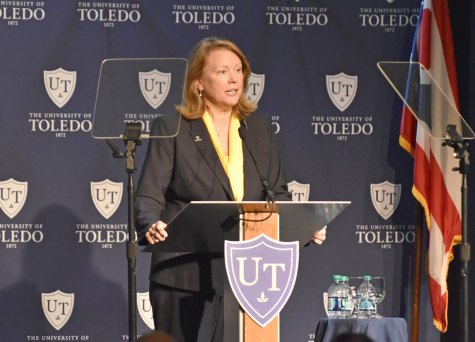Abayateye: Good lessons from Phoenicia’s fiasco
Hang on for a minute...we're trying to find some more stories you might like.
Email This Story
Twenty-three years. That’s how long Phoenicia Cuisine’s doors have been open on the University of Toledo campus. That’s also how long the restaurant provided alternative dining that nourished the bellies of different generations of UT’s campus community.
Given that I’ve only patronized the cuisine a few times in my four-odd years on campus, I’m probably the least qualified to write an ode to Phoenicia. Yet, I was worried when Student Government announced that the UT administration was forcing our beloved restaurant to fold up next year. I tried in my mind to figure out what reasons the administration would proffer to justify this decision. At least by this point, I still believed the truism in that story.
For those who didn’t know, the story sounded like this: Ed Barakat, Phoenicia’s owner, approached Student Government and told them that discussions with UT’s administration suggested that he might have to give up his dining space to Aramark. He did not ask them to take any action — only to weigh in on students’ interest on the issue. But the student body did more than that. They asked students to show their support for their beloved cuisine by tweeting at the administration. Well, students did. They also showed up in huge numbers to dine, of course at discounted rates, at the restaurant.
Soon, the administration noticed and responded. Basically, they disparaged the story as baseless and ill-informed. Many agreed it was an embarrassing moment for Student Government. I think that sloppiness was inexcusable of a group whose leadership may one day become the leaders of our society.
Beyond this embarrassment, however, I see many positive outcomes from the situation that we must embrace and celebrate.
The first beautiful thing about the situation is that it affirmed our community’s commitment to the importance of collective public action. Cast your minds back to the Boston Tea Party demonstration, the Boston Massacre, the civil rights movements and a host of others. What you realize is that collective action plays a crucial role in reforming society, in transforming it into something more desirable.
Cesar Chavez once said, “We cannot seek achievement for ourselves and forget about progress and prosperity for our community… Our ambitions must be broad enough to include the aspirations and needs of others, for their sakes and for our own.”
Without doubt, as students, our first commitment is to our studies. We want to excel in this, but we also want to do good by our community. In the heat of the moment, students showed up in great numbers to support what they thought was an important element of their society. They tweeted, posted on Facebook and had informal discussions in classrooms, the library and just about everywhere else. For me, this was a victory for community action. It provides a reassuring satisfaction of what the future of our societies are going to be. After all, campus is a microcosm of society.
On a different level, the situation reemphasized our administration’s commitment to listening to students’ opinions and putting that into what they do. President Gaber’s reaction is a case in point. She said, “UT has enjoyed a long relationship with Ed and Sam Barakat of Phoenicia. We have no plans for Phoenicia to leave UT or to end our relationship.”
As we would eventually find out, the university was considering many options to increase the number of dining spaces on campus, and that included the possibility of taking away Phoenicia’s space. Also, we heard the move was a matter of financial expedience. Yet, the President was willing to do what it takes to keep Phoenicia — an important part of our community’s history — going. For me, that is a great development from this unfortunate situation.
Finally, the situation provided the community an opportunity to engage ourselves in discussing an issue that has deep roots in our society — the issue of free choice and the value of alternatives to creating competition and food quality on campus. If Aramark ends up becoming a monopoly, it would mean that students’ power of free choice would be limited. Well, you could say that Aramark would provide a wide variety of food choices, but the reality would be that Aramark will be the only player in the market.
How does that idea of a food monopoly sync with our democratic ideals? If we’re training students to appreciate the values that made our societies great, then an Aramark monopoly wouldn’t be sending a good message.
By all means, we should pursue financial prosperity for our university. But, in doing so, we should not sacrifice elements of our society that contribute to UT’s unique campus experience. After surviving 23 years on this campus, Phoenicia just happens to position itself as an important part of that experience.
It is not my intention to justify Student Government’s sloppiness in handling the issue. I think their rashness is unacceptable and deserving of the criticisms they got. Yet, I believe that sloppiness also provided our campus community an opportunity to be excited about how great we are. It gave us a chance to show our commitment to working together towards improving our shared campus experience.
Philemon Abayateye is a Ph.D. student in the Department of Geography and Planning and the IC’s Opinion Editor.












Leave a Comment